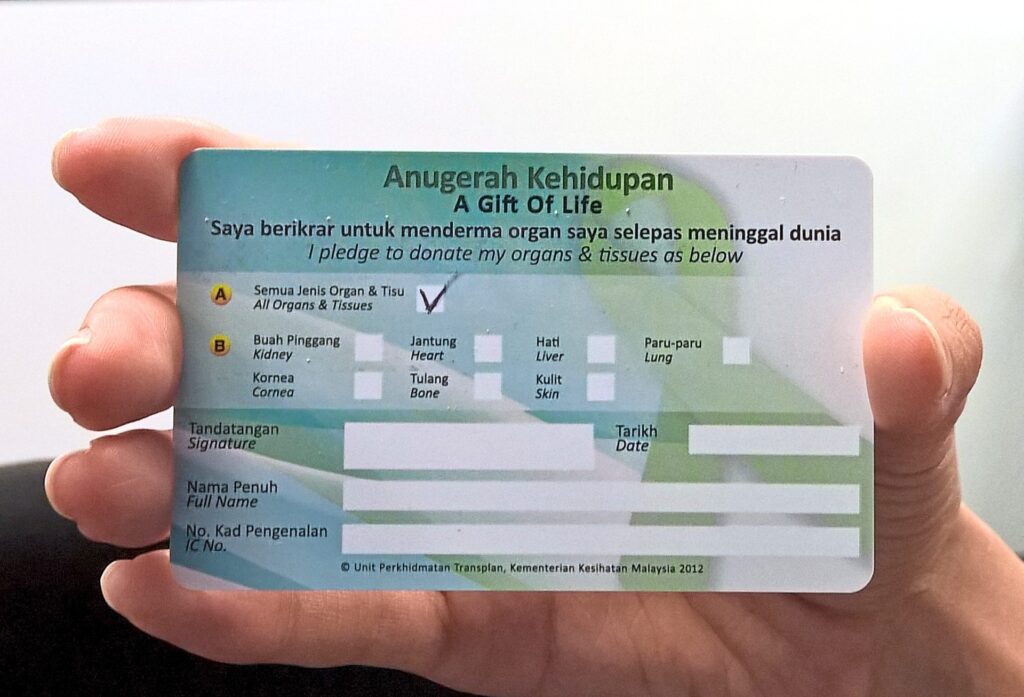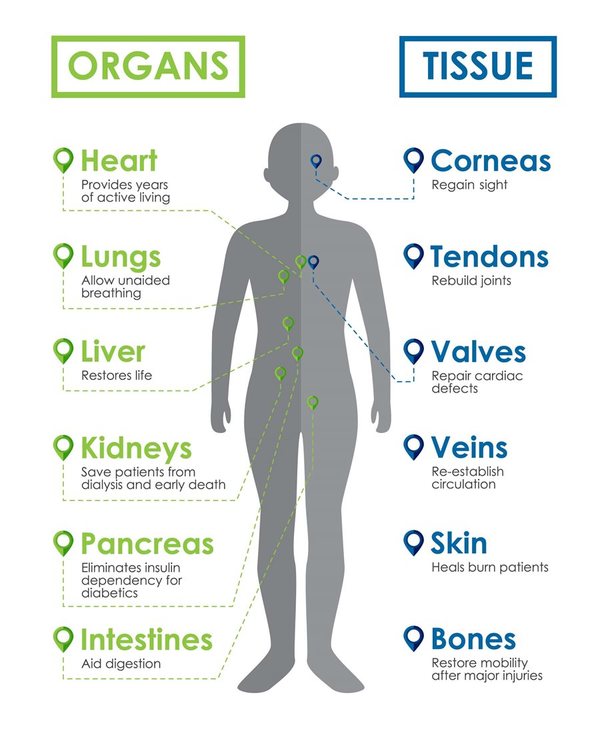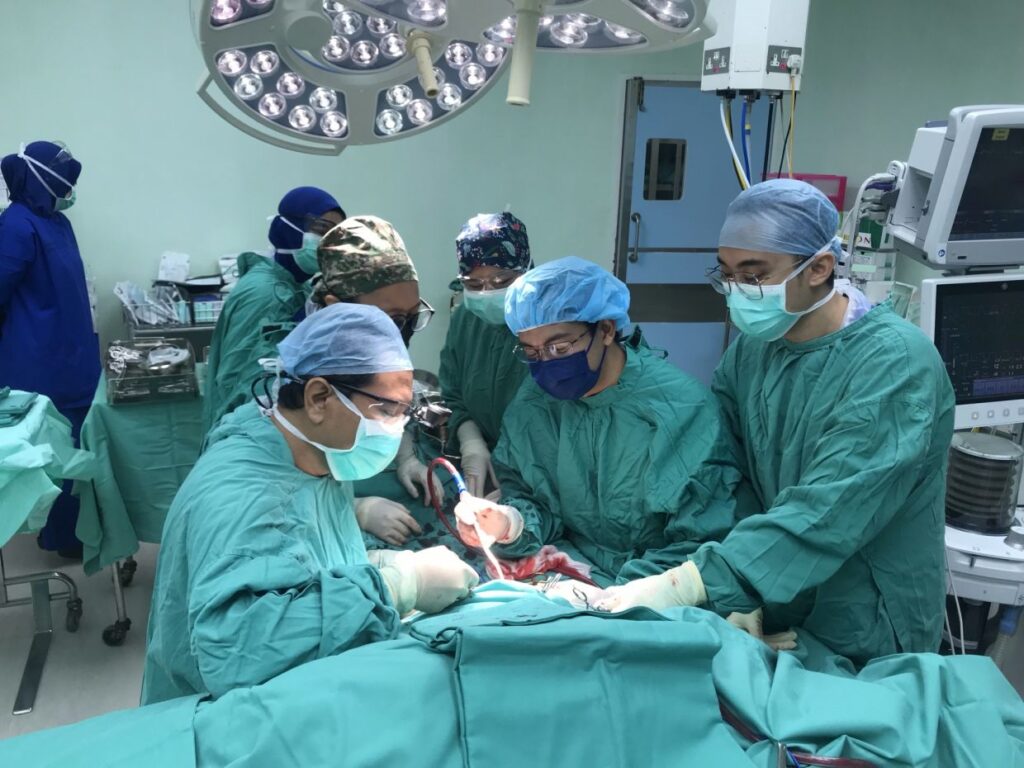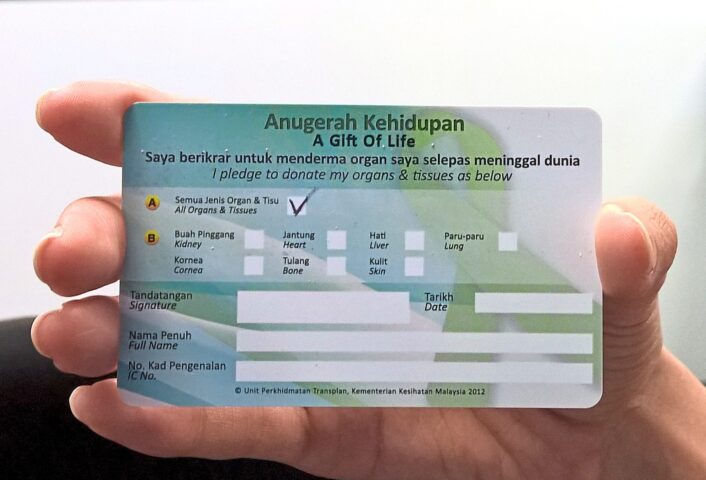
Organ donation is a selfless act that can save lives. In Malaysia, many people suffer from organ failure due to various medical conditions. Unfortunately, the demand for organs exceeds the supply, leaving many patients on the waiting list for years.
According to the National Transplant Registry, there are 10,077 patients on the waiting list for organs in Malaysia as of April 2023. Just remember, when you donate one or two organs, you can make a significant difference in the lives of those who are waiting for a transplant.
Organ Donation In Malaysia
Organ donation in Malaysia is governed by the Human Tissue Act 1974. Under this act, organs can only be removed from a deceased person if they had consented to donate their organs in writing, or if their next-of-kin gives permission.
Which Organs Can Be Donated In Malaysia?

In Malaysia, several organs can be donated, including the heart, liver, kidney, lung, pancreas, and cornea. Living donors can donate a portion of their liver or one of their kidneys, while deceased donors can donate multiple organs.
Listed below we have elaborated the six organs that can be donated in Malaysia.
Heart
The heart is a vital organ that pumps blood throughout the body. Unfortunately, heart failure is a leading cause of death in Malaysia. A heart transplant can be a life-saving option for those with severe heart failure. However, heart transplants are relatively rare due to the limited availability of suitable donors. To donate a heart, the donor must be brain dead, and the heart must be healthy and functioning correctly.
Liver
The liver is the largest internal organ in the body and plays a crucial role in detoxification, metabolism, and digestion. Liver transplants are a common treatment for end-stage liver disease, cirrhosis, and liver cancer. Living donors can donate a portion of their liver, and the remaining liver will regenerate within a few weeks.
Kidney
The kidneys are responsible for filtering waste products from the blood and regulating the body’s fluid balance. A living donor can donate one of their kidneys, and the remaining kidney will compensate for the loss of function. Deceased donors can also donate their kidneys, and the organ can be preserved for up to 24 hours.
Lung
The lungs are responsible for exchanging oxygen and carbon dioxide, and lung failure can be life-threatening. Lung transplants are a treatment option for those with severe lung disease, such as pulmonary fibrosis and chronic obstructive pulmonary disease (COPD). In Malaysia, lung transplants are relatively rare due to the limited availability of suitable donors. The donor must be brain dead, and the lungs must be healthy and functioning correctly.
Pancreas
The pancreas is a glandular organ that plays a crucial role in regulating blood sugar levels. Pancreas transplants are a treatment option for those with type 1 diabetes who have severe hypoglycemic unawareness and other complications. Just like lung donation, pancreas transplants are relatively rare due to the limited availability of suitable donors. The donor must be brain dead, and the pancreas must be healthy and functioning correctly.
The Process Of Organ Donation

The process of organ donation in Malaysia starts with the identification of a potential donor. If the person is brain dead or on life support, their family will be approached by medical personnel to discuss organ donation.
The family will be given information about the process, and if they consent, the medical team will retrieve the organs for transplantation. After the organs are retrieved, they are transported to a transplant centre for transplantation.
Here is an overview of the organ donation process in Malaysia:
1. Identification of a potential donor
The process of organ donation starts with the identification of a potential donor who has either expressed their consent to donate their organs in writing or whose next-of-kin has given permission for organ donation after their death. The potential donor may be identified in the hospital, in the community, or through the national registry.
2. Assessment of suitability for organ donation
Once a potential donor is identified, medical personnel conduct a thorough assessment to determine the suitability of the donor’s organs for transplantation. The assessment involves checking the donor’s medical history, conducting physical exams, and running laboratory tests to ensure that the organs are healthy and viable for transplantation.
3. Consent from next-of-kin
If the potential donor is brain-dead or on life support, their next-of-kin will be approached by medical personnel to discuss organ donation. The next-of-kin will be given information about the process and the implications of organ donation, and their consent will be sought.
4. Retrieval of organs
If the next-of-kin consents to organ donation, the medical team will retrieve the organs for transplantation. The retrieval process is carried out in a sterile environment, and the organs are removed with the utmost care to ensure their viability for transplantation.
5. Transport of organs
After the organs are retrieved, they are transported to a transplant center for transplantation. The transportation process is carried out under strict conditions to maintain the viability of the organs.
6. Transplantation of organs
At the transplant centre, the organs are transplanted into the recipients who are matched to the donor based on factors such as blood type, tissue type, and medical urgency. The transplantation process is carried out by a team of skilled surgeons and medical personnel, who ensure that the organs are transplanted safely and effectively.
Can You Sell Organs In Malaysia?
Organ trafficking is a global problem, with millions of people in need of organ transplants and a shortage of available organs for transplantation. This has led to the emergence of a black market for organs, where people can buy and sell organs for large sums of money.
In Malaysia, the Human Tissue Act 1974 prohibits the buying and selling of organs, tissues and cells, as well as the extraction of organs without proper consent. The law recognizes that organ trafficking is a serious crime and imposes heavy penalties on offenders. According to the law, anyone found guilty of buying or selling organs can be fined up to RM 100,000 and/or face imprisonment for up to 20 years.
To learn more about organ donation or how to donate organs in Malaysia visit Derma Organ.










